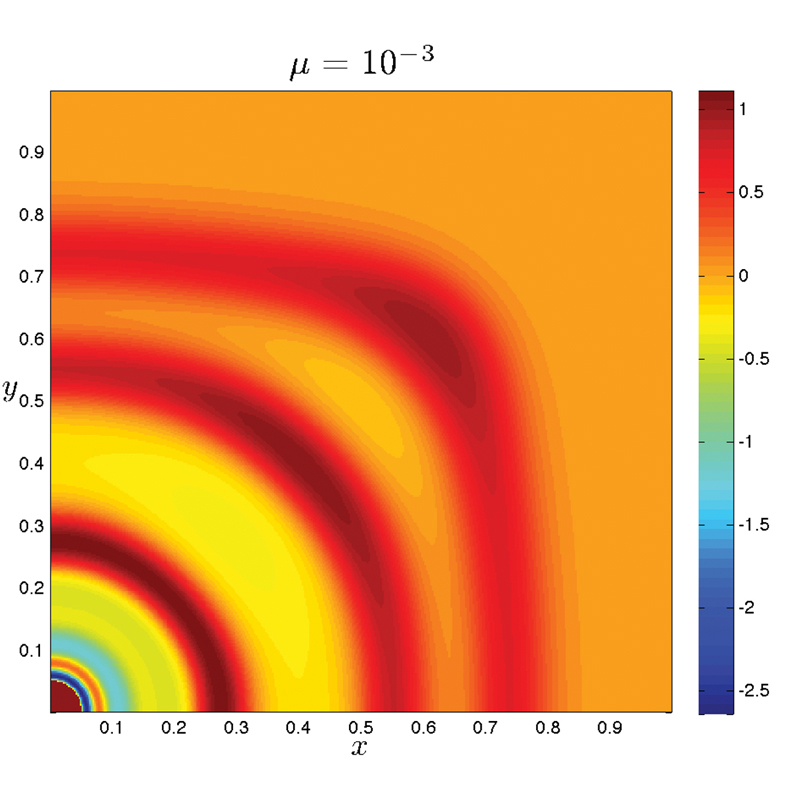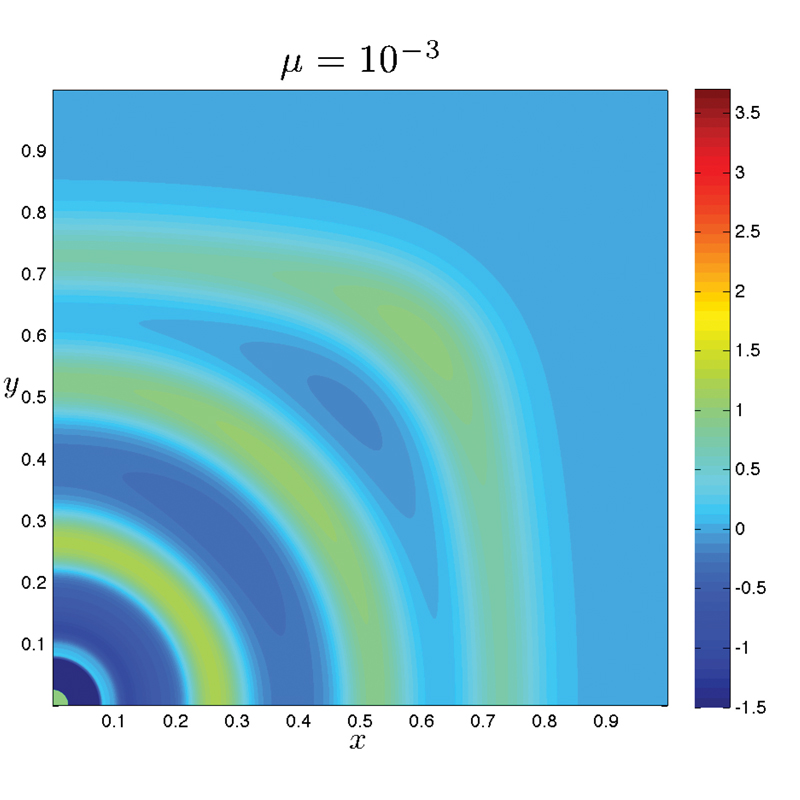Math at CMU Welcomes Three New Faculty Members
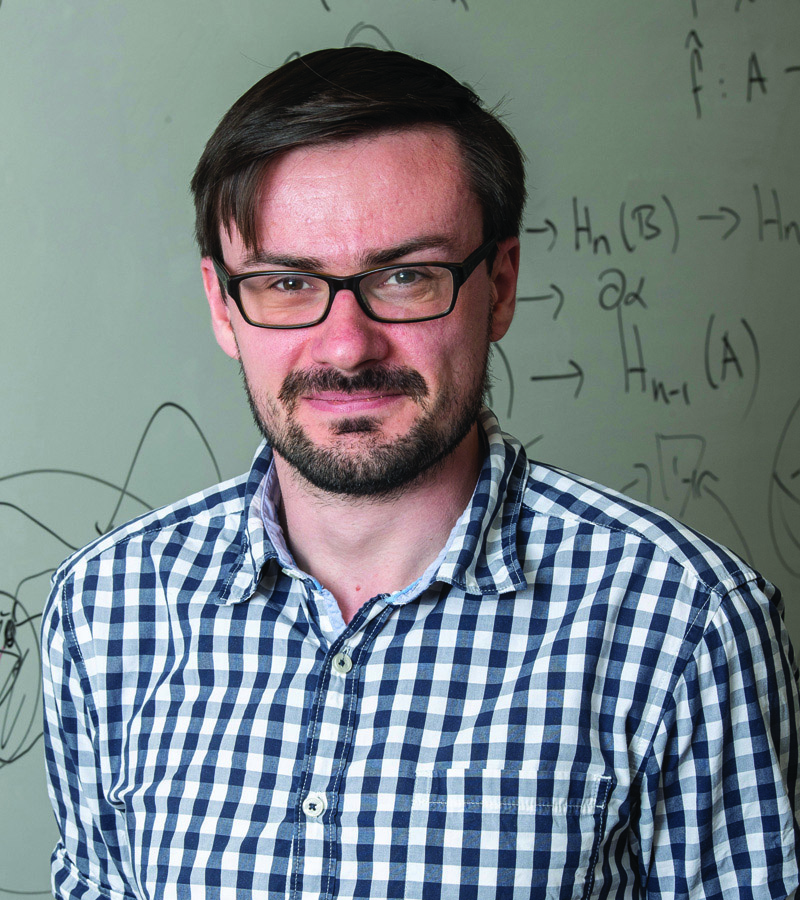
Florian Frick
Assistant Professor Florian Frick joined the Department of Mathematical Sciences at Carnegie Mellon in July.
A native of Germany, Frick came to Carnegie Mellon from Cornell University, where he was an assistant professor for three years. During that time, he also spent a semester as a postdoctoral fellow at the Mathematical Sciences Research Institute in California. He earned his Ph.D. in 2015 from Technische Universität Berlin, from which he also obtained his bachelor’s and master’s degrees.
“I work at the triple-point of combinatorics, topology and geometry,” Frick said of his research. He said Carnegie Mellon’s strong group of faculty who work in combinatorics attracted him to come here.
An example of Frick̓s research is his work to calculate whether it’s possible to find four points that form a square within a curved figure on a plane. Another area of mathematics he’s interested in is one that is relatable to many people at some point in their lives: fair rent division.
“It’s always possible,” he said.
In a paper that will appear in American Math Monthly, Frick and his collaborators found an algorithm that could divide roommates so they would be content with their different rents and rooms, even if one doesn̓t know the preferences of one of the people who will be living in the apartment.
“I am impressed by his work on the disproof of topological Tverberg conjecture,” said Boris Bukh, associate professor of mathematics.
Before joining the faculty, Frick previously presented at Carnegie Mellon in December 2017 on the intersections of finite sets as part of the Department of Mathematical Sciences’ colloquia program.
Outside of his research, Frick said he enjoys attending music concerts, running and watching Netflix. “I don’t know Pittsburgh yet, but I’m hoping it turns out to be exciting.”
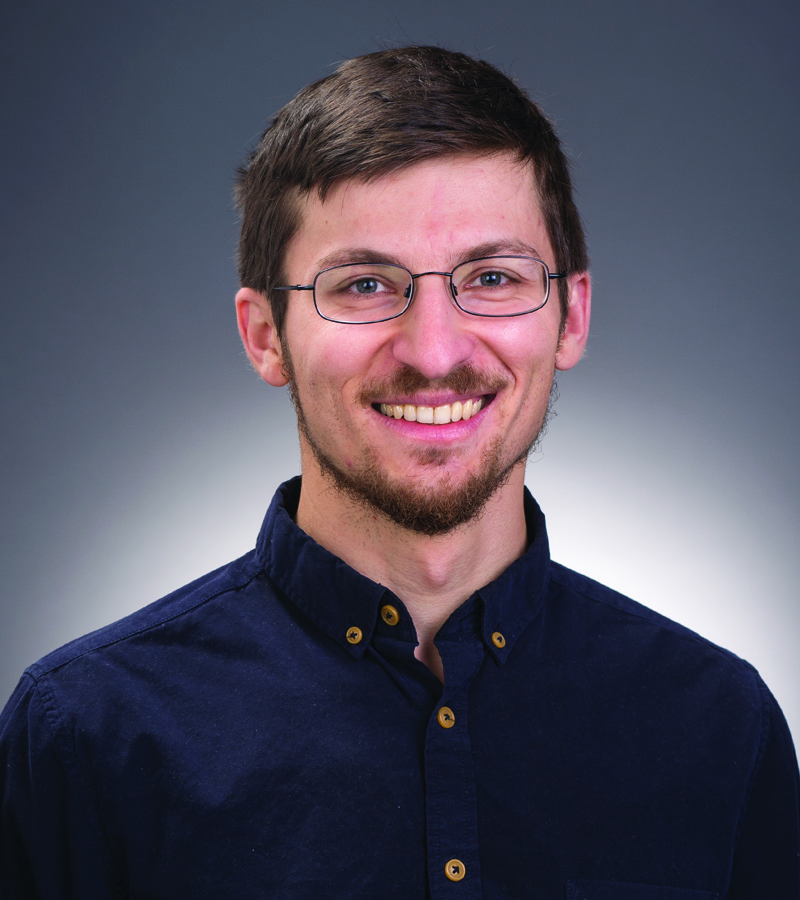
Tomasz Tkocz
Assistant Professor Tomasz Tkocz joined the Department of Mathematical Sciences at Carnegie Mellon in January.
A native of Poland, Tkocz came to Carnegie Mellon after time spent working as a Berlekamp Postdoctoral Fellow at the Mathematical Sciences Research Institute in California and as a postdoctoral research associate at Princeton University. He obtained his Ph.D. from the Mathematics Institute at the University of Warwick in the United Kingdom after studying at the University of Warsaw.
“My research revolves around probability,” Tkocz said, and the number of Carnegie Mellon faculty working in this field incentivized him to come here.
“I’m interested in problems related to probabilistic questions that don’t have too much structure,” Tkocz said. “I’m also interested in applying such theory to related fields like convex geometry.”
Tkocz said he is “particularly fond” of studying high-dimensional phenomena, the topic on which he based his Ph.D. thesis. An example Tkocz offered of his work in this field is studying what one could say about the typical volume in a high-dimensional setting. (For an introduction to this class of problems, see pages 12-13.)
“The mathematical areas he’s worked in are all essential for theoretical computer science,” Professor of Computer Science Ryan O’Donnell said of Tkocz’s research “His work is important to many fields. His work on mixtures of Gaussians is important for machine learning, his work on entropy inequalities is important to information theory, his work on random matrix theory is important to quantum computing and his work on chaining is important to coding theory and compressed sensing.”
Before joining the faculty, Tkocz previously presented at Carnegie Mellon in December 2016 on Gaussian mixtures as part of the Department of Mathematical Sciences’ colloquia program.
Outside of his research, Tkocz describes himself as a nature lover, and he enjoys hiking and climbing in the various parks around the Pittsburgh area. He also enjoys experimenting with new dishes and styles in cooking.
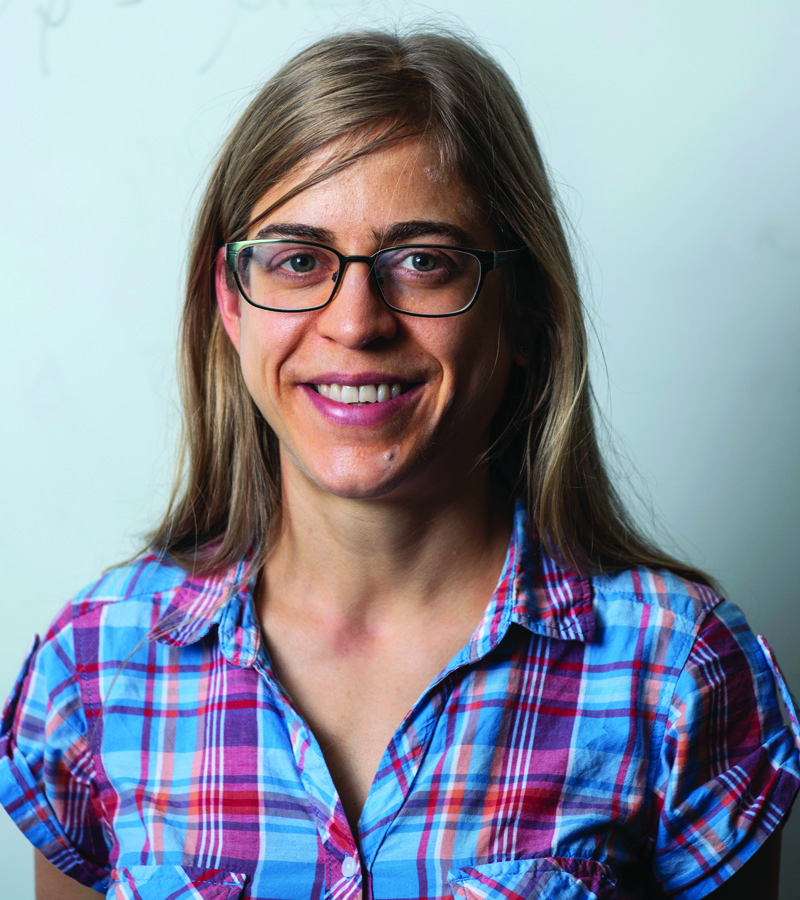
Franziska Weber
Assistant Professor Franziska Weber joined the Department of Mathematical Sciences at Carnegie Mellon this fall.
Weber came to Carnegie Mellon from the University of Maryland, College Park, where she worked as a postdoctoral fellow. She obtained her Ph.D. from the University of Oslo in Norway after receiving bachelor’s
and master’s degrees from the Swiss Federal Institute of Technology in Zürich, Switzerland, where she also held a postdoctoral research position.
“There are a lot of really good people in my extended field here,” Weber said of why she came to Carnegie Mellon.
Weber̓s research focuses on partial differential equations, which provide mathematical descriptions of physical phenomena. As these equations cannot be solved explicitly, instead, one must construct an algorithm that can then be used to solve the equation.
“My job is to construct algorithms for certain kinds of equations like those governing fluids and waves,” Weber said of her research. For example, Weber creates algorithms to study the Rosensweig instability, a sequence of peaks and valleys that form on the surface of a magnetic fluid in the presence of a strong magnetic field.
“Fluids, such as ferrofluids and liquid crystals, show up in daily applications and have special properties,” said Irene Fonseca, Kavčić-Moura University Professor. For example, Weber creates algorithms to study the Rosensweig instability, a sequence of peaks and valleys that form on the surface of a magnetic fluid in the presence of a strong magnetic field.
Before joining the faculty, Weber previously presented at Carnegie Mellon in December 2017 on the structure preserving numerical methods for nonlinear partial differential equations modeling complex fluids as part of the Department of Mathematical Sciences̓ colloquia program, and in April at the Women and Mathematics at Carnegie Mellon University conference.
Outside of work, Weber enjoys outdoor activities such as running, hiking, skiing and snowboarding.

